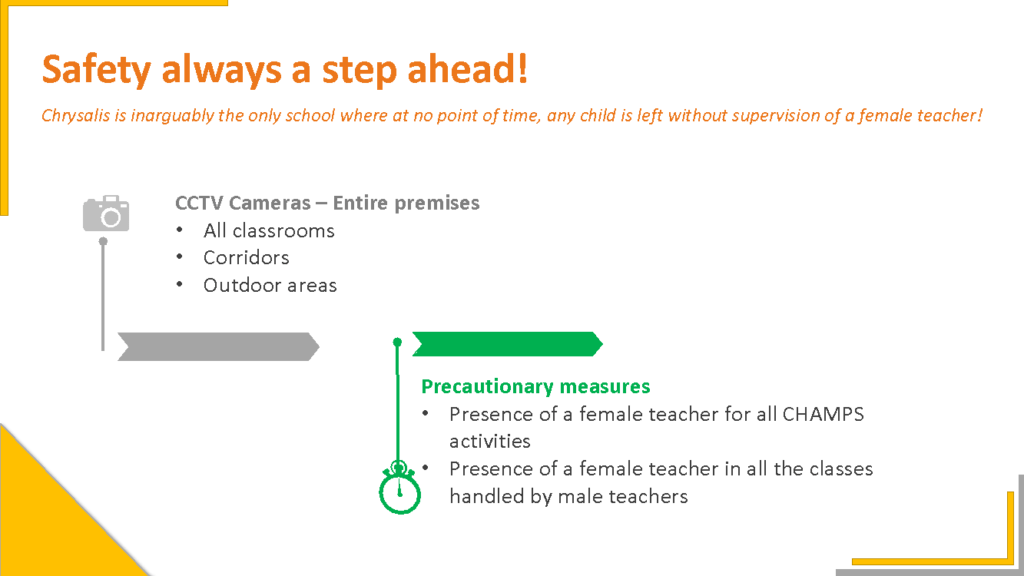Life Skills

The term ‘life skills’ is usually used for any of the skills needed to deal well and effectively with the challenges of life. They may also be called psychosocial skills, as they are psychological in nature and include thinking and behavioural processes. Others define life skills as behavioural, cognitive, or interpersonal skills that enable individuals to succeed in various areas of life.
Generally, any skill that improves one’s life could be considered a life skill. Aside from this broad definition, the World Health Organization notes that there are a few subtypes of life skills. These include:
Communication Skills
One of the most crucial life skills for kids is effective communication. This skill will be useful in every area of their lives, from personal relationships to future careers. It helps children develop strong communication skills by encouraging them to express themselves clearly and concisely. Also, teach active listening skills to kids so they can understand others.
Problem-Solving Skills for Kids
Another essential life skill that children need to develop is problem-solving. This skill will come in handy when they encounter challenges in their lives. Teach children how to identify the root cause of a problem and brainstorm possible solutions. Also, they should be encouraged to think critically and creatively to come up with the best solution.
Decision-Making Skills for Kids
Making decisions is another essential life skill that children need to develop. This skill will help them to make the right choices in life. Teach children how to weigh the pros and cons of a situation before deciding. Also, encourage them to listen to their intuition and follow their gut instinct.
Time Management Skills for Kids
Time management is another essential life skill that children need to learn. Teach children how to set priorities and manage their time effectively. This skill will help them to avoid procrastination and stay organised.
Coping Skills for Kids
Coping skills are important for dealing with stress and adversity in life. Teach children how to identify their emotions and healthily cope with them. Also, encourage them to seek help from others when needed.
Interpersonal Skills for Kids
Interpersonal skills are essential for interacting with others effectively. Teach children how to communicate clearly and assertively. Also, encourage them to resolve conflicts peacefully.
Critical Thinking Skills
Critical thinking skills are important for making sound decisions in life. Teach children how to think logically and analyse information critically. Also, encourage them to question everything and look at both sides of every issue.
Self-Advocacy Skills
Self-advocacy skills are important for assertively communicating one’s needs and wants. Teach children how to speak up for themselves in a respectful way. Also, encourage them to identify and ask for the resources they need.
Stress Management Skills
Stress management skills are important for maintaining a healthy mental state. Teach children how to identify and manage their stressors. Also, encourage them to practice relaxation techniques such as deep breathing and visualisation.
Able to tell the difference between good and bad touch
Bad touch is any kind of touch that makes a person feel scared, uncomfortable, or sad. Good touch is any kind of touch that feels pleasant and safe. Children need to learn the difference between good and bad touch to stay safe from harm.
Activities to develop life skills in the classroom
Many teachers have established a strong emphasis on connectivity and digital literacy in today’s digitally enhanced world. In and out of school, our children are spending an increasing amount of time on their computers so it’s even more critical that we don’t overlook certain life skills, especially those related to human interaction.
Emotional Recognition
Encourage students to identify and talk about their feelings. This has the added advantage of improving language skills. This can be accomplished by simple games. Miming emotions is a well-known cultural practice in which students mime how they are feeling, and the other students guess the adjective.
Collaboration
Include activities that enable learners to collaborate and solve problems together. Asking them to make a mood poster is a good place to start. They can create a poster or Venn diagram in which they map various emotions in small groups, such as happy, excited, worried, angry, and so on.
Posters can be hung on the wall. In a class, every now and then, ask students to work in pairs and use the mood posters they created to indicate how they are feeling. They can discuss why they are feeling this way, and their partner can empathize or provide advice to help them feel better.
Empathy Exercises
Assist students in recognizing and empathizing with others’ emotions. This can be accomplished through stories and creative experiences that encourage students to put themselves in other people’s shoes. You can show a snapshot of people in interesting situations to your students.
Ask them to pretend to be one of the people in the picture. What are their thoughts? How might they be feeling? Students can share their thoughts before engaging in a role play in which they pretend to be the characters in the pictures or by writing a story reflecting on the other person’s experience.
Become aware of what you don’t know.
Admitting to ourselves and others that we do not know something is a valuable ability, but it can be challenging for both high-achieving and failing students. Motivating students to ask questions in the classroom is one way to effectively cultivate this ability.
Being wrong is okay
Even the brightest students have trouble advocating for themselves. To encourage students to develop this habit, create a risk-free atmosphere in the classroom, where giving an incorrect response is seen as an opportunity for development and reflection rather than a source of shame. In class discussions, spend just as much time discussing incorrect answers and why students make them as you do with correct answers.
It is the teacher’s responsibility to assist students in learning, but it is the student’s responsibility to inform the teacher if they don’t understand something. Students are more likely to share areas of misunderstanding or ask for clarification when teachers create a safe place to ask questions.
Goal Setting
Teachers should intentionally teach a growth mentality at school. A way this can be done is by holding goal-setting sessions and discussing what to do if the results aren’t as anticipated. Individual discussions should go as follows: Fantastic outcome. What are you going to do now to build on this and continue to grow?
It improves student relationships, and students increase their progress. It takes time, but it teaches young people to set achievable goals and continue to build upon them.
Deep conversations
Students benefit from having meaningful, long-lasting discussions. Students’ ability to closely read an extended nonfiction text, perform and simplify analysis, contribute to a topic-centred meeting, and synthesize results can be assessed in chat rooms exercises.
Ask difficult questions
Invite students to investigate a subject they’ve always wanted to learn more about. Questions of this type could be asked:
- Are disabilities illnesses or gifts?
- What motivates people to achieve success?
- In today’s world, should we be selfless or selfish?
Conclusion
Students should look for and read a couple of books or sources that will help them get closer to a solution. Students could then use innovative projects to present their results. This exercise can help students investigate challenging questions, find satisfying answers, and understand others.
For further exploration of educational content and insights, delve into the resources available on Chrysalis High.
FAQ
What are the key life skills that every child should develop?
Explore the comprehensive list of 10 essential skills that lay the foundation for a child’s success and well-rounded development.
How can parents foster the development of these skills in their children?
Gain insights into practical strategies and activities that parents can implement to nurture and enhance the identified skills in their children.
At what age should parents start focusing on these skills with their kids?
Understand the age-appropriate milestones for introducing and reinforcing each skill, tailoring approaches to the developmental stages of children.
What long-term benefits do these skills provide for a child’s future?
Discover the lasting impact of cultivating these skills, including their role in shaping a child’s character, resilience, and success in various aspects of life.


